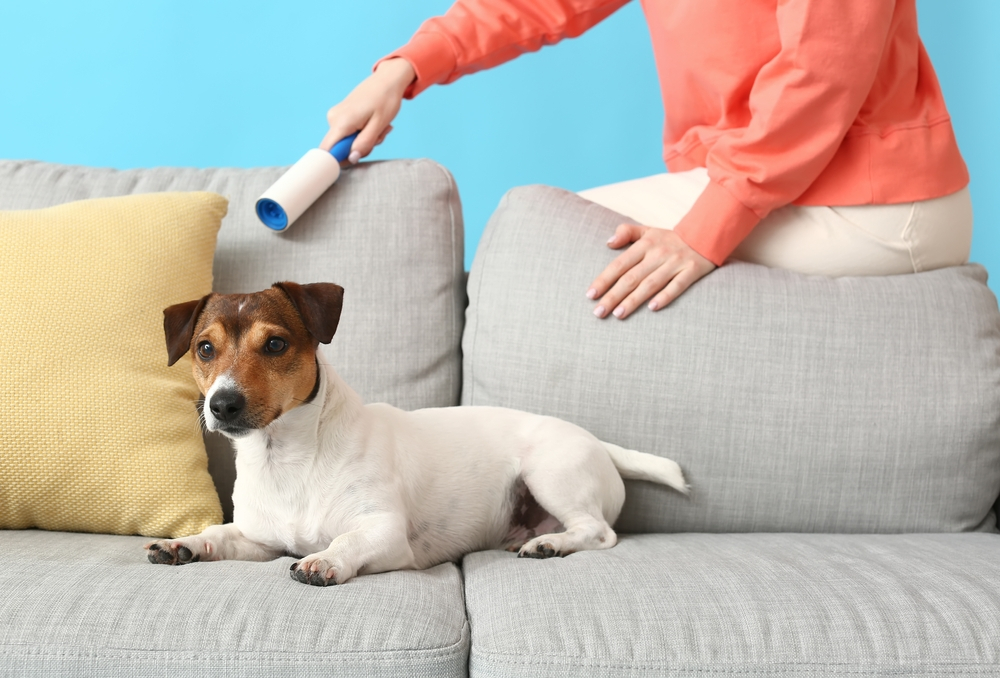Living with pets can bring immense joy and companionship into our lives. Whether you share your space with a playful pup, a curious cat, or any other furry friend, the bond between humans and animals is truly special. However, it’s important to ensure that this companionship doesn’t compromise your health. In this article, we will explore various ways to stay healthy around pets, addressing potential health risks and offering practical tips for a harmonious coexistence
.
Understanding Potential Health Risks:
- Allergies and Asthma:
- Identify Triggers: Recognize common allergens such as pet dander, saliva, and urine.
- Regular Cleaning: Maintain a clean living environment by vacuuming, dusting, and washing pet bedding frequently.
- Zoonotic Diseases:
- Regular Vet Check-ups: Ensure your pets receive routine veterinary care to prevent the spread of zoonotic diseases.
- Personal Hygiene: Wash hands thoroughly after handling pets, their food, or cleaning their living areas.
- Parasites:
- Flea and Tick Prevention: Use appropriate preventive measures to protect both your pets and yourself.
- Regular Vet Visits: Schedule routine check-ups to monitor and manage parasite infestations.
Practical Tips for Staying Healthy:
- Maintain a Clean Living Space:
- Regular Cleaning Routine: Implement a cleaning schedule to minimize the accumulation of pet dander and other allergens.
- Air Purification: Invest in air purifiers to improve indoor air quality.
- Grooming Practices:
- Regular Baths: Depending on the pet, establish a bathing routine to keep them clean.
- Brushing: Regularly brush your pets to reduce shedding and the spread of loose fur.
- Proper Ventilation:
- Open Windows: Allow fresh air to circulate by opening windows and doors regularly.
- Use Exhaust Fans: Install and use exhaust fans in areas where pets spend a significant amount of time.
- Healthy Diet for Pets:
- Quality Nutrition: Provide a balanced and nutritious diet for your pets to maintain their overall health.
- Avoid Sharing Food: Refrain from sharing your meals with pets to prevent the transmission of bacteria.
- Regular Exercise:
- Physical Activity: Engage in regular exercise with your pets to promote a healthy lifestyle for both of you.
- Outdoor Adventures: Take your pets for walks, runs, or other outdoor activities to keep them active and happy.
- Visit the Vet Regularly:
- Vaccinations: Ensure your pets are up-to-date on vaccinations to prevent the spread of diseases.
- Health Check-ups: Schedule routine veterinary visits to monitor your pet’s overall health.
- Create Designated Pet-Free Zones:
- Bedrooms and Furniture: Establish certain areas in your home where pets are not allowed, especially in sleeping areas.
- Use Pet Gates: Use pet gates to restrict access to certain parts of your home.
Conclusion:
While the benefits of having pets are undeniable, it’s crucial to be aware of potential health risks and take proactive measures to stay healthy around them. By incorporating these tips into your routine, you can create a harmonious living environment that promotes the well-being of both you and your beloved pets. With proper care and attention, the bond between humans and animals can be a source of joy and companionship for many years to come.
Owning a pet is a significant and rewarding commitment that can bring immense joy and companionship to our lives. Whether you are considering adopting a furry friend or already share your home with one, it’s essential to understand both the risks and benefits associated with pet ownership. This comprehensive guide explores various aspects of having pets, shedding light on the potential challenges and the numerous rewards that come with welcoming a four-legged companion into your life.
I. Benefits of Pet Ownership:
A. Emotional Well-being:
- Companionship: Pets, especially dogs and cats, provide unconditional love and companionship, promoting emotional well-being.
- Reduced Stress: Interacting with pets has been linked to lower stress levels, leading to improved mental health.
- Sense of Purpose: Taking care of a pet can instill a sense of purpose, contributing to increased feelings of happiness and fulfillment.
B. Physical Health:
- Increased Physical Activity: Dog owners, in particular, tend to engage in more physical activities, leading to improved cardiovascular health.
- Lower Blood Pressure: The act of petting animals has been associated with lower blood pressure and reduced risk of heart disease.
- Boosted Immune System: Exposure to pet dander and microbes can strengthen the immune system, especially in children.
C. Social Benefits:
- Facilitated Social Interactions: Pets can serve as social catalysts, fostering connections and interactions between people.
- Community Building: Pet ownership often leads to the formation of communities where pet owners share experiences, tips, and support.
II. Risks of Pet Ownership:
A. Financial Considerations:
- Cost of Care: Owning a pet comes with financial responsibilities, including veterinary care, food, grooming, and other related expenses.
- Unexpected Emergencies: Medical emergencies or unexpected health issues can lead to significant financial burdens.
B. Time and Commitment:
- Time Investment: Pets require time and attention, including regular exercise, play, and grooming.
- Long-term Commitment: Different pets have varying lifespans, and owners must be prepared for the long-term commitment of caring for their animals.
C. Allergies and Health Concerns:
- Allergies: Pet allergies can be a concern for some individuals, affecting both children and adults.
- Zoonotic Diseases: Pets can transmit certain diseases to humans, emphasizing the importance of proper hygiene and regular veterinary check-ups.
III. Responsible Pet Ownership:
A. Preparation and Research:
- Before getting a pet, thoroughly research the specific needs and characteristics of the chosen species or breed.
- Consider the time, financial resources, and commitment required for responsible pet ownership.
B. Regular Veterinary Care:
- Schedule regular check-ups with a veterinarian to ensure your pet’s health and well-being.
- Stay up-to-date on vaccinations and preventative care measures.
C. Training and Socialization:
- Properly train and socialize your pet to ensure they behave appropriately in various situations.
- Invest time in obedience training to strengthen the bond between you and your pet.
D. Nutrition and Exercise:
- Provide a balanced and nutritious diet based on your pet’s specific needs.
- Engage in regular exercise and play to keep your pet physically and mentally stimulated.
Conclusion:
Understanding the risks and benefits of
pet ownership is crucial for making informed decisions that align with your lifestyle and preferences. While pets can bring immense joy and positive influences to our lives, responsible ownership involves careful consideration, preparation, and ongoing commitment. By acknowledging both the rewards and



